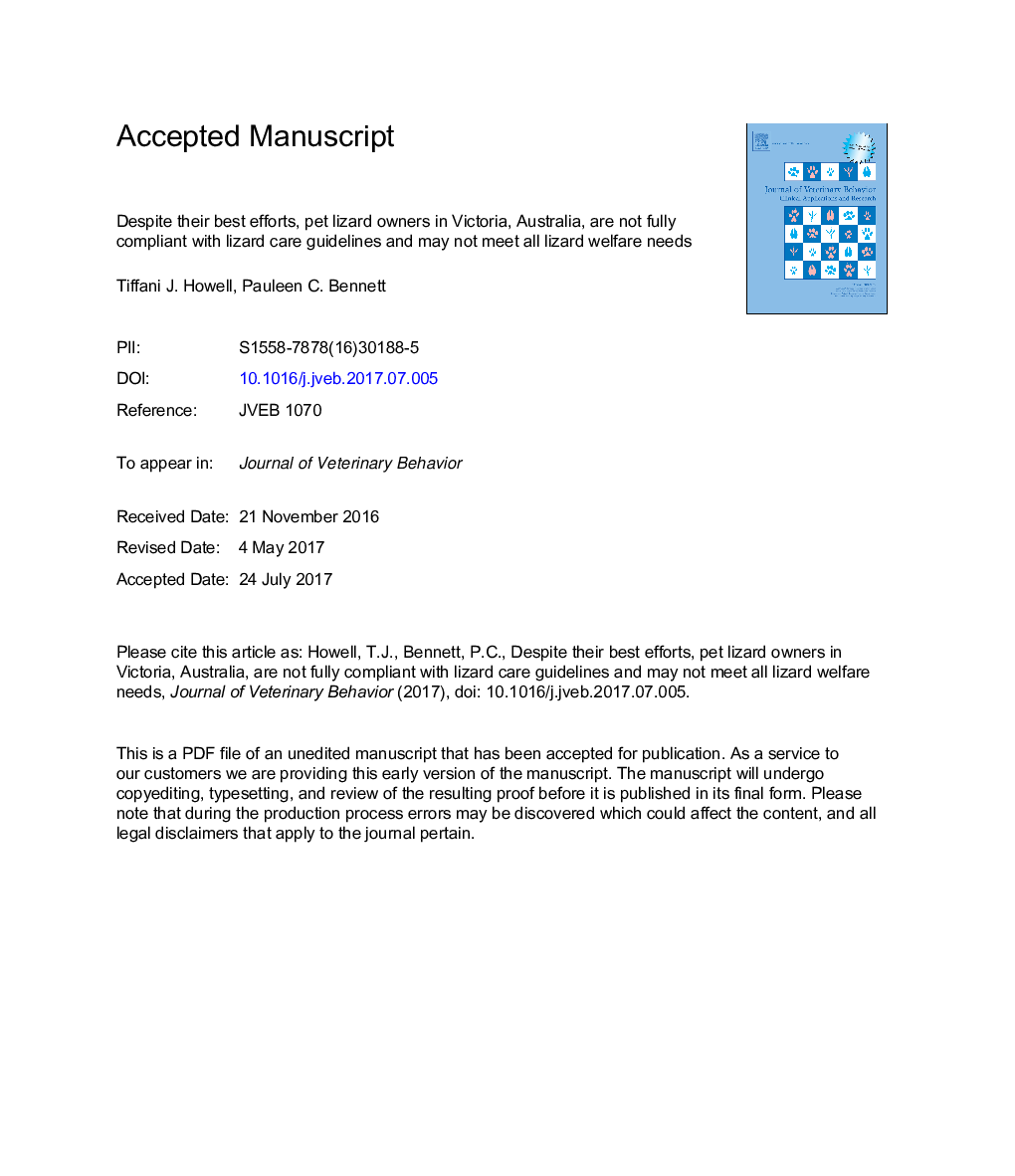| Article ID | Journal | Published Year | Pages | File Type |
|---|---|---|---|---|
| 5535984 | Journal of Veterinary Behavior: Clinical Applications and Research | 2017 | 47 Pages |
Abstract
Owner practices affect pet welfare, and little is known about the ways in which reptile owners attempt to meet their pet's welfare needs. We asked 316 pet lizard owners in Victoria, Australia, for information on the ways in which they seek to meet their pet's environmental, dietary, behavioral, social, and health needs. Items were generated based on the Victorian Code of Practice (CoP) for the Private Keeping of Reptiles and in collaboration with the then President of the Victorian Herpetological Society. Results suggest that many owners are not fully complying with the CoP. Moreover, even those who are compliant may not be meeting their animal's full repertoire of needs. Nearly half of the owners do not have an enclosure large enough to meet the standards set in the CoP, and a similar percentage do not seasonally vary the environmental conditions provided in their lizard's enclosure. It is likely, therefore, that many lizards experience captivity-related stress because of inadequate enclosures. Many owners underestimate the likely total cost of their pet lizard over the course of its lifetime, suggesting that educational campaigns highlighting the financial and time costs of lizard ownership are merited. Future behavioral research should aim to better understand pet lizard needs to optimize welfare outcomes for these animals.
Related Topics
Life Sciences
Agricultural and Biological Sciences
Animal Science and Zoology
Authors
Tiffani J. Howell, Pauleen C. Bennett,
